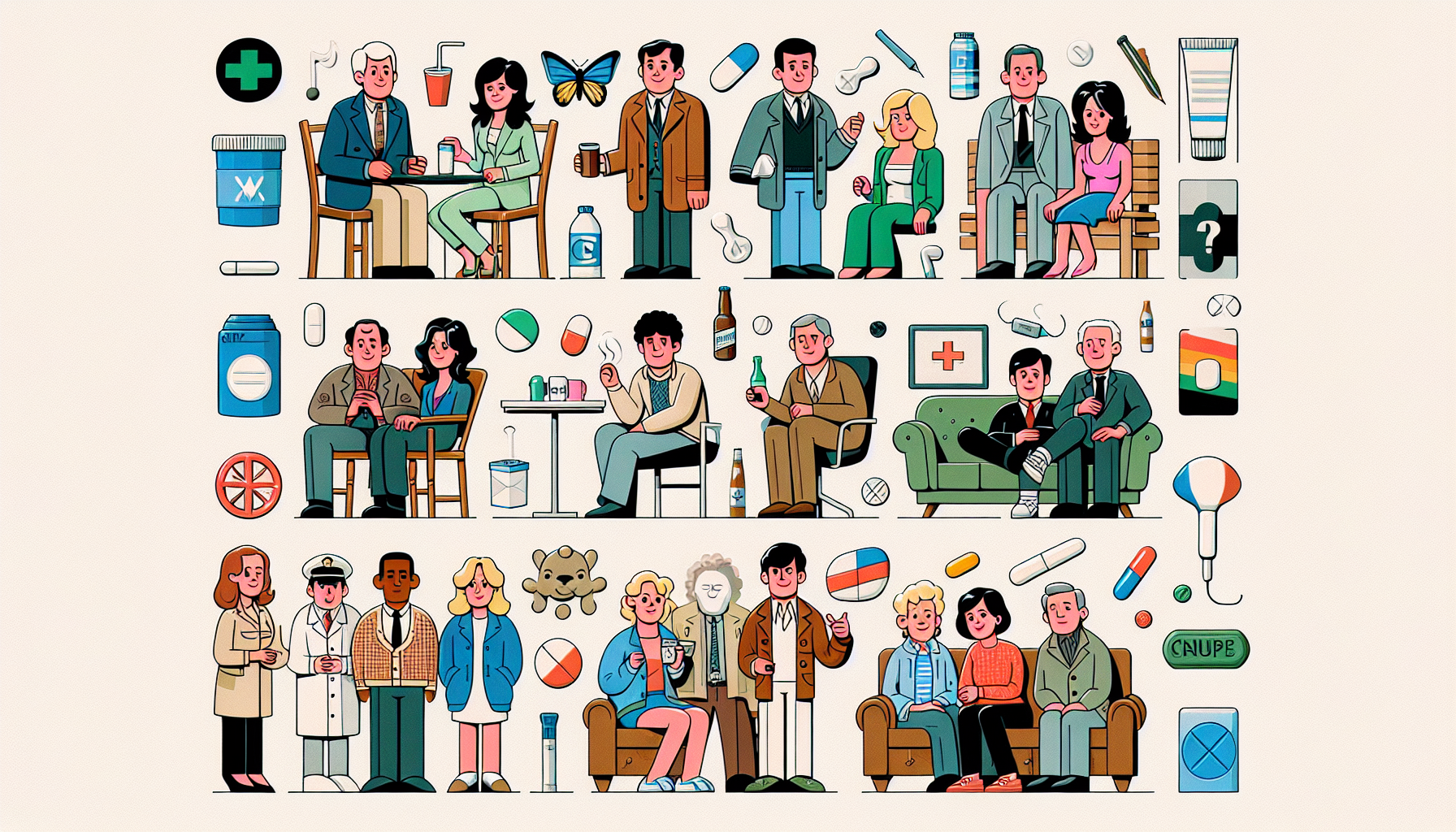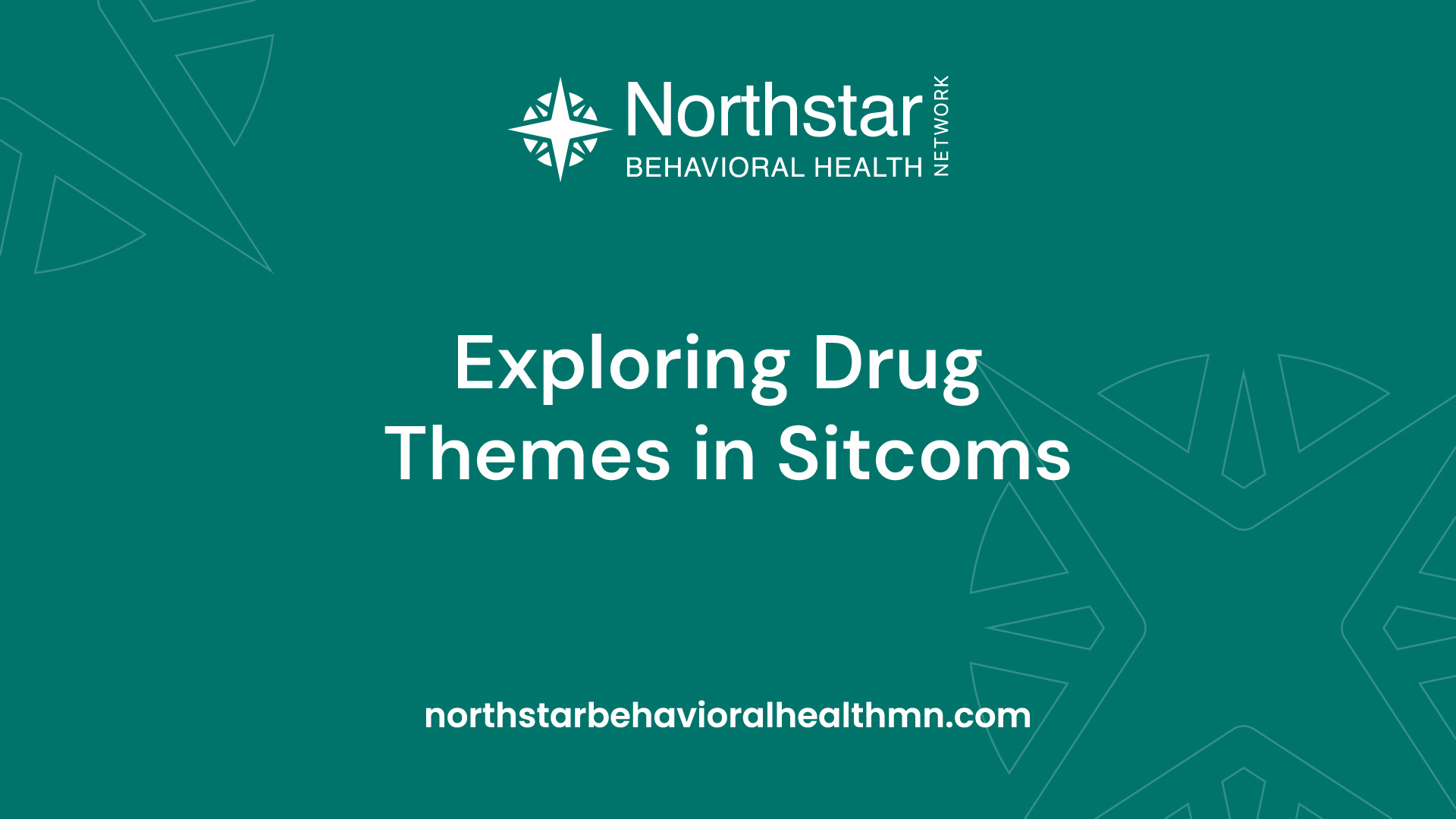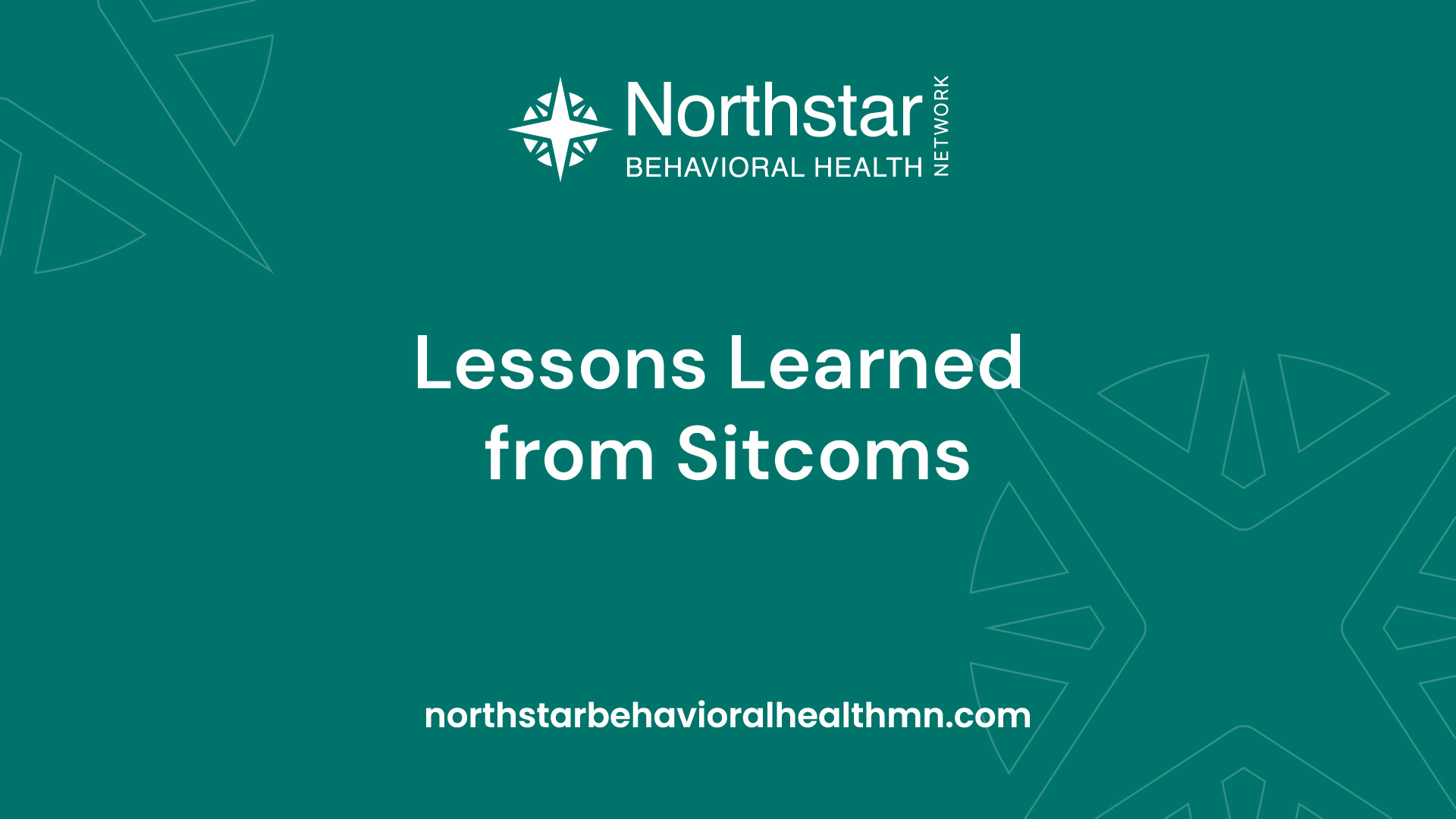August 27, 2024
Comedy Meets Drugs: Top Ten Sitcoms From Your Youth
Discover the top ten sitcoms about drugs from your growing up years, bringing humor and awareness together.


Nostalgic Sitcoms and Drug Humor
During our formative years, sitcoms played a significant role in shaping our entertainment choices and cultural references. Some of the most memorable sitcoms from that era dared to tackle the topic of drug use through humor. These shows served a dual purpose - entertaining viewers while also addressing important social issues. Let's explore the role of sitcoms in addressing drug use and the power of humor as a tool for education and awareness.
The Role of Sitcoms in Addressing Drug Use

Sitcoms have often been at the forefront of addressing societal issues, and drug use is no exception. These shows recognized the importance of discussing drug-related topics in a relatable and accessible way. By injecting humor into their storylines, sitcoms were able to present drug use as a subject of discussion without sacrificing entertainment value.
Through comedic portrayals of characters experimenting with or navigating the consequences of drug use, sitcoms sparked conversations and raised awareness about the risks and challenges associated with substance abuse. By presenting these issues within a familiar and lighthearted context, sitcoms helped to demystify drug use and encourage dialogue among viewers.
Humor as a Tool for Education and Awareness
Humor has long been recognized as a powerful tool for education and awareness. It allows complex and sensitive subjects like drug use to be approached in a non-threatening and engaging manner. By employing humor, sitcoms were able to capture the attention of viewers and convey important messages about the consequences of drug use.
Through clever writing and comedic timing, sitcoms delivered valuable lessons about drug-related topics, such as the dangers of addiction, the impact on relationships, and the importance of seeking help. The use of humor allowed these messages to resonate with audiences on a deeper level, making the information more memorable and relatable.
It's important to note that while sitcoms may use humor to address drug use, they should not be seen as trivializing or endorsing substance abuse. Instead, these shows aimed to create a platform for discussion and promote awareness by using humor as a tool to engage viewers.
By exploring drug-related themes in sitcoms, we can appreciate the role they played in raising awareness and starting conversations. These shows were able to entertain and educate simultaneously, leaving a lasting impact on their audiences. As we reflect on the sitcoms that shaped our growing up years, it is worth recognizing the power of humor in addressing important social issues like drug use.
Top Ten Sitcoms from the Past

During our growing up years, there were several sitcoms that tackled drug-related themes with humor and wit. These shows entertained audiences while also shedding light on the realities of drug use. Here are three of the best sitcoms from that era:
That '70s Show
- Synopsis: Set in the 1970s, this sitcom follows a group of teenagers in Wisconsin. The show often includes scenes of the characters using marijuana, reflecting the era's counterculture.
Family Ties
- Synopsis: This show features the Keaton family, where episodes such as "Alex Doesn't Live Here Anymore" tackle drug-related issues, particularly focusing on the impact of drug use on family dynamics.
Saved by the Bell
- Synopsis: In the episode "Jessie's Song," Jessie Spano becomes addicted to caffeine pills, a storyline that addresses drug abuse and its effects on a high school student.
Diff’rent Strokes
- Synopsis: This series about two orphaned brothers living with a wealthy white family includes episodes like "The Reporter," where drug use is depicted as a problem affecting young people.
The Fresh Prince of Bel-Air
- Synopsis: The show follows Will Smith as he moves to a wealthy neighborhood. Episodes like "The Uncle Phil’s Birthday" touch on drug addiction and its impact on families.
Growing Pains
- Synopsis: The show centers on the Seaver family, with episodes like "Mike’s Wedding" exploring the challenges of substance abuse and the effects on family relationships.
Roseanne
- Synopsis: This sitcom about a working-class family often addresses real-life issues. Episodes such as "The Lottery" touch on themes of addiction and the struggles faced by individuals and families.
Cheers
- Synopsis: Set in a Boston bar, this show frequently deals with alcoholism. Characters like Sam Malone and others grapple with their own drinking problems in a comedic yet poignant manner.
One Day at a Time
- Synopsis: This series features the Roman family, with episodes like "The Drug Store" addressing alcohol and drug abuse, and its impact on family life and personal growth.
The Wonder Years
- Synopsis: This nostalgic show, set in the late 1960s and early 1970s, includes episodes that touch on drug use as part of its broader exploration of coming-of-age issues.
These sitcoms, along with many others from that era, played a significant role in using comedy to address drug-related themes. Through their storytelling and relatable characters, they sparked conversations and raised awareness about the consequences of drug use. While these sitcoms entertained us with their humor, they also left a lasting impact by promoting healthy choices and encouraging open discussions about drug use.
Remember, it's important to approach these sitcoms with an understanding that comedy is a tool for education and awareness. While they may portray drug-related themes in a humorous manner, it's crucial to recognize the line between comedy and reality. By appreciating the entertainment value of these sitcoms while being mindful of their underlying messages, we can learn valuable lessons and foster responsible viewing and discussion.
Exploring Drug Themes in Sitcoms

Sitcoms have often tackled drug-related storylines, using humor as a way to address these topics and engage audiences. By exploring drug themes in sitcoms, we can gain insights into the common storylines presented and examine the impact of drug humor on viewers.
Common Drug-Related Storylines
Throughout the history of sitcoms, several common drug-related storylines have emerged. These storylines often revolve around characters experimenting with or facing the consequences of drug use. Some sitcoms may take a lighthearted approach, using drug humor as a way to entertain and engage the audience, while others may delve into more serious and realistic portrayals.
Here are some examples of common drug-related storylines in sitcoms:
Impact of Drug Humor on Audiences
The use of drug humor in sitcoms can have various impacts on audiences. While it can provide entertainment value and comedic relief, it is essential to consider the potential effects, especially on individuals who may be struggling with substance abuse issues.
For some viewers, drug humor in sitcoms may promote a casual and lighthearted attitude towards drug use. It is crucial to recognize the line between comedy and reality, understanding that real-life consequences and health risks associated with drug use may not be accurately portrayed in sitcoms.
On the other hand, drug humor in sitcoms can also serve as a starting point for conversations about drug use and its implications. By using humor to address serious topics, sitcoms can spark discussions and increase awareness among viewers.
It is essential for viewers to approach drug-related humor in sitcoms with a critical mindset and to engage in open conversations about the realities of drug use. Understanding the difference between comedy and real-life consequences is crucial in promoting responsible viewing and discussion.
By exploring drug themes in sitcoms, we can appreciate the role of humor in addressing drug-related topics and recognize the potential impact it can have on audiences. Through responsible viewing and open conversations, we can better navigate the complex portrayal of drugs in entertainment media and promote awareness and understanding.
Lessons Learned from Sitcoms

Sitcoms have long been a source of entertainment and laughter, but they also have the power to address real-life issues through comedy. When it comes to drug-related themes, sitcoms can serve as a platform for promoting healthy choices and raising awareness about substance abuse.
Addressing Real-Life Issues Through Comedy
One of the remarkable aspects of sitcoms is their ability to tackle serious topics in a lighthearted and relatable manner. By incorporating drug-related storylines, these shows provide a unique opportunity to engage audiences and initiate conversations about substance abuse. Through clever writing and comedic timing, sitcoms can shed light on the challenges and consequences of drug use, while still entertaining viewers.
By using humor to address real-life issues, sitcoms create a safe space for audiences to explore sensitive subjects without feeling overwhelmed or judged. This approach allows for a more open and receptive environment, making it easier for individuals to reflect on their own experiences and attitudes towards drug use.
Promoting Healthy Choices and Awareness
In addition to addressing real-life issues, sitcoms can play a crucial role in promoting healthy choices and raising awareness about drug use. By portraying both the positive and negative consequences of drug-related behaviors, these shows can help viewers make more informed decisions when it comes to substance abuse.
Sitcoms can emphasize the importance of seeking help, highlighting the resources available for those struggling with addiction. By showcasing characters who overcome their struggles and seek recovery, sitcoms can provide hope and inspiration to individuals who may be facing similar challenges.
It is essential, however, to recognize the line between comedy and reality. While sitcoms can serve as a valuable tool for education and awareness, it's important to remember that they are fictional representations. Real-life situations involving drug use require careful consideration and professional guidance. If you or someone you know is struggling with addiction, it is recommended to seek help from qualified professionals.
By learning from the lessons presented in sitcoms, individuals can gain valuable insights into the impact of substance abuse and the power of making healthy choices. These shows can serve as a starting point for open discussions about drug-related topics and encourage viewers to take responsibility for their own well-being. Remember, laughter can be a powerful catalyst for change, and sitcoms have the ability to entertain and educate simultaneously.
Responsible Viewing and Discussion
When engaging with sitcoms that address drug use, it's important to approach the topic responsibly. Encouraging open conversations about drug use and recognizing the line between comedy and reality are essential aspects of responsible viewing and discussion.
Encouraging Open Conversations About Drug Use
Sitcoms that tackle drug-related themes can serve as a starting point for conversations about drug use. By watching these shows together with friends, family, or support groups, individuals can share their thoughts and perspectives on the portrayal of drug use in a comedic context.
Open conversations provide an opportunity to discuss the potential consequences of drug use, the impact it can have on individuals and communities, and the importance of making informed decisions. It's crucial to create a safe and non-judgmental space where everyone feels comfortable expressing their opinions and experiences.
To further explore the topic of drug use and addiction, it can be helpful to reference resources such as articles, books, or professional guidance. For individuals who are struggling with addiction, seeking support from addiction recovery programs or professionals can provide valuable insights and guidance. You can find more information on addiction and recovery in our article on is there a difference between a slip and a relapse?.
Recognizing the Line Between Comedy and Reality
While sitcoms often use humor to address drug-related topics, it's important to distinguish between the fictional world of television and real-life situations. The portrayal of drug use in sitcoms is often exaggerated or presented in a comedic manner, which may not accurately reflect the serious consequences and challenges associated with addiction.
Recognizing the line between comedy and reality helps individuals maintain a balanced perspective on drug use. It's essential to understand that the situations depicted on screen may not accurately represent the complexities of addiction or the experiences of those affected by it.
By acknowledging the difference between sitcoms and real-life, individuals can approach drug-related content with a critical mindset. This can include questioning the accuracy of portrayals, researching the facts behind the comedic elements, and using the shows as a starting point for further exploration and education.
Remember, while sitcoms can provide entertainment and serve as a catalyst for discussions, they should not be the sole source of information on drug use and addiction. Utilize reliable resources and seek professional guidance to gain a comprehensive understanding of these topics.
Responsible viewing and discussion involve actively engaging with the content, fostering open conversations, and ensuring that the line between comedy and reality is recognized. By doing so, individuals can gain insight, expand their knowledge, and promote a better understanding of drug-related issues.

.jpg)




.jpg)

